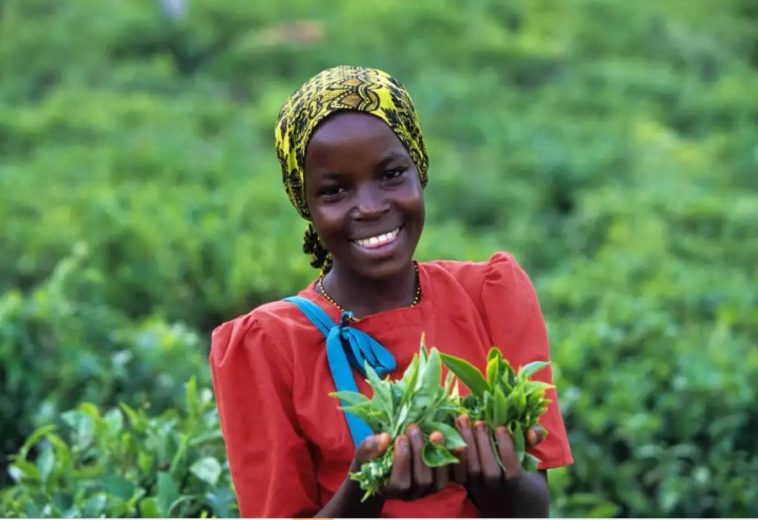It’s a little-known fact that the United Kingdom pays for and distributes billions of condoms throughout Africa. It’s part of a long-standing commitment to combat the spread of HIV Aids.
It’s also a good example of how aid and trade are intrinsically intertwined. The common wisdom that trade is good and aid is bad only tells part of a very complex relationship between Africa and the wider world.
Ever since the great Zambian-born economist Dambisa Moyo published her seminal book “Dead Aid” in 2010 there’s been a recognition that aid hasn’t helped Africa prosper but has actually condemned the continent to poverty and a dependency on others.
Moyo argued that over the past fifty yearsor so around one trillion dollars of development aid had flowed from largely western governments into Africa– and there was very little to show for it on the ground. Rather than achieving its stated goal of reducing poverty aid donations had contributed to economic stagnation and political corruption.
In “Dead Aid” she highlights a culture of “aid dependency” which she argues blunts the incentives for African leaders to develop their own economies, while contributing to corruption as some leaders have been able to mismanage and abuse incoming aid funding. As a result the aid often goes to the wrong places and doesn’t reach those who need it most.
One of Moyo’s theories that has really struck a chord is her belief that aid often crowds out private investment and blunts the promotion of entrepreneurship and business ingenuity.
That message has been embraced by many western governments. The UK government’s Trade Ambassador in East Africa Lord Popat is a true believer in the power of trade to transform the continent:
“Every time one of our UK Ministers goes to Africa and talks about aid Africans hate it. Our High Commissioners tell Ministers don’t talk about aid, they don’t like it and they don’t want it. Trading prosperity is the key not aid”.
Lord Popat says this mind shift from aid to trade is really working. He highlights a trade mission to Uganda he led recently to support the Ugandan government’s industrialisation programme. This includes helping to finalise UK financing for a hospital and electricity and solar power projects:
“The UK is investing heavily in Uganda because increased trade between the UK and Uganda will deliver more jobs, increased exports and technology transfers.
“Africa is under-going a sea change. I was born in Uganda. When I was at school there you wouldn’t find a single African who was qualified as a teacher. Now we’ve got a body of highly qualified people. There’s a lot of enthusiasm for Africans to own their own businesses. Everywhere now in Africa you find young entrepreneurs setting up their own enterprises and trying to sell you things. These SMEs are the cornerstone of the economy and they are flourishing”.
Lord Popat says the trade figures speak for themselves. When he became Trade Minister in 2016 UK trade with Uganda was worth £140 million, now it’s in excess of £2 billion.
Likewise in Rwanda where £12 million of trade in 2016 has grown to more than £1 billion as Rwanda continues to develop its infrastructure and promote inward investment. Lord Popat also highlights the role Rwanda’s shirt sponsorship with Arsenal Football Club as a good example of this new entrepreneurial Africa:
“Every year since President Kagame and Arsenal signed that deal tourism in Rwanda has grown by 8%. It’s changed perceptions of Rwanda and places Africa as the next frontier for trade and investment”.
Lord Popat sees the African Continental Free Trade Agreement (AfCTFA) as a key player in the new Africa. He points to theTrademark East Africa is a great example of promoting the intra-Africa cross-border trade that the AfCFTA seeks to promote:
“I remember queues of lorries at the border between Uganda and Kenya, sometimes some six or eight miles long. It would take the drivers up to six hours to get across the frontier. Now thanks to the electronic controls that have been installed it takes less than six minutes.
“Uganda’s President Museveni told me that as a result of these digital systems customs and duty is now thirty times higher between Uganda and Kenya. That will allow better roads and greater intra-Africa trade.”
The UK is investing £140 million in the AfCFTA project to make it effective and facilitate the trade of goods, services and people in Africa to help create the world’s largest single market serving a population in excess of 1.1 billion people.
Does that investment count as trade or is that aid? Very often the two strands are closely inter-twined. Perhaps the answer is not to choose between either aid or trade. That’s the view of the World Trade Organisation’s International Trade Centre’s Arancha Gonzales:
“ It would be a simplification to make countries choose between aid and trade. The reality is that both are needed. The question is not whether to choose between aid or trade, but how to balance the two.”
The International Trade Centre (ICT) works by providing training on how African entrepreneurs can secure access to capital. According to Ms Ganzales:
“ There are thousands of companies that could benefit if we build capacity locally. The expertise that we provide for mango producers in Senegal, for example, will also benefit pineapple or poultry producers there.
“We have a project with spice traders in Zanzibar, Tanzania. We found out that producers can obtain up to 20 times more revenue by branding and packaging the product attractively.”
The US government is firmly moving to this view that Africa needs more trade than aid. At a recent event in honour of Africa Day the US’s Chair of the House Foreign Affairs subcommittee on Africa, Karen Bass stressed this shift towards trade and investment:
“We view the continent of Africa as a partner – as an investment partner, a business partner and don’t view the continent of Africa as a place where we need to deliver charity”.
The US’s African Growth and Opportunity Act (AGOA) is a concrete example of this trend. It offers many African economies duty-free access to the US market across more than 1,800 goods. In the words of the veteran Nigerian politican Ngozi Okonjo-Iweala the Director General of the World Trade Organisation (WTO):
“Trade, not aid, for Africa”, she says andpoints out:
“We need to make use of the African Continental Free Trade Area to develop certain industries. If we want to trade more, we need to add value. We can’t continue selling the same raw materials we used to do if we want to move forward. So there’s a huge opportunity on the continent.
“ I see three opportunities for the future. One is the services trade, the next is digital trade. That’s a huge opportunity. E-commerce is becoming so important, and the third is green trade, there is going to be a big opportunity in green trade and investment”.
For other African leaders like Fronati Kofa, the Deputy Speaker of the Liberian parliament China sets a good example for the continent’s path to prosperity. Speaking at the African Leadership Summit in London he said:
“I admire where China has come from. It had a single mind–set and Africa can do the same. We can develop a single currency and open our borders. It’s time to develop a pan-African approach.
“African leadership has been stereotyped because of what happened in the past. We are building new breed of competent and capable leaders, committed to transparency. As Africans we must act together and take our place on the world stage”.
It’s a view endorsed by Lord Popat of the UK’s Uganda and Rwanda Trade mission:
“Africa is a sleeping giant that is now waking up. It has the talent, knowledge, creativity and resource to prosper. Don’t look at Africa through a Band Aid lens that Africa is poor or begging for money. Look at Africa’s potential through new eyes. Africa will shape the world of the future.
“The potential is enormous. There’s an emerging middle class in Africa of highly educated people. With a population about to double there’s a growing demand for education, health services, energy, infrastructure you name it”.
Lord Popat recognises that agriculture remains a key sector in Africa and has been encouraging UK investors to help develop Uganda’s agribusiness to be more climate emergency resilient and enabling Uganda’s farmers to gain access to affordable finance.
So Trade is the future but don’t write off the importance of aid just yet. Lord Popat’s own UK government has just published a chilling report of what happens when the aid runs out. It’s the work of the UK Parliament’s International Development Committee and it looks at the devastating impact UK government aid cuts have wrought.
The UK was committed to spending 0.7% of its Gross National Income on international development or aid as it iscommonly known. In addition around a thirdof the remaining budget is now spent on funding refugees awaiting processing in the UK. As a direct result many of the UK’s aid projects have been slashed:
*The African Girls Education Department has suffered a 87% reduction in funding so it estimated that 230,000 students will be denied education, including 115,000 girls.
*In South Sudan 27,000 children suffering from severe and acute malnutrition will no longer be fed, 12% or 3,000 of them will die.
*Also in South Sudan cuts to a Gender Based Violence education programme means that 101,580 women will no longer be supported and taught how to prevent and respond to violent attacks on them.And 567,000 children will no longer receive their childhood vaccinations.
*In Ethiopia 41,700 teachers will no longer receive training and 233,000 pupils will lose access to education. In addition 8,000 disabled children will no longer be able to attend inclusive schools.
*1,000s of women across Africa will die as they no longer have access to pre-natal and maternity services.
Perhaps the starkest evidence from the Committee is the fact that feedingprogrammes in Ethiopia’s “From Crisis to Resilience” scheme has been cut from £41 million to £24 million. It says that as a consequence some 350,000 beneficiarieswill no longer receive food.
Overall it makes grim reading. It is also a reminder that aid is not dead but still has a vital role in the lives of millions of Africans living in some of the continent’s most deprived and impoverished countries.
Trade may well be the future but we ignore the importance of aid at our peril. It seems that the UK government has recognised that and next year its aid to Africa is planned to double from £646 million to more than £1.3 billion. And it has promised to restore its commitment to 0.7% of GDI when economic conditions allow.
This contrasts starkly with the $34 billion trade that takes place between the UK and Africa each year. Trade dwarfs Aid by a considerable margin. And that will only grow in the coming years.
The Trade versus Aid debate will continue but the reality is Africa needs every resource it can get its hands on if the continent is to prosper.


